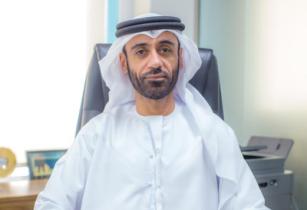The Emirates Green Building Council (EmiratesGBC), an independent forum for environmental conservation by strengthening and promoting green building practices, has unveiled the results of its study ?Advancing Deep Retrofits in the UAE? at the virtual EmiratesGBC Webinar
According to the study, a majority (84%) of the respondents, including consultants, suppliers, manufacturers and ESCO experts, agree that more than 50% energy savings are possible in the UAE through deep retrofit.
The study was conducted to understand the current awareness and capabilities of the UAE?s retrofit market, as well as the challenges and opportunities associated with deep construction retrofit projects. It aims to encourage industry and government to explore solutions, approaches and incentives to retrofit buildings that go beyond current renovation programmes to achieve greater energy and financial savings.
It presents the views of major stakeholders in the UAE retrofit market to support the development of national and emirate-level road maps for the deep refurbishment and decarbonisation of existing buildings.
HE Ali Al Jassim, chairman of EmiratesGBC, said, ?The EmiratesGBC? Advancing Deep Retrofits in the UAE? study highlights the current situation of the UAE?s retrofit market. We believe that achieving deep retrofits can be executed by implementing energy efficiency measures before the addition of on-site renewable energy generation. We are committed to supporting the UAE?s goals for a greener future, with the nation being among the first to announce its commitment to the ?Zero Carbon Buildings for All? initiative, a multi-partner global initiative led by the World Resources Institute and endorsed by the UN Secretary-General. Deep Retrofit plays a major role in making this commitment a reality.?
?The long-term value of deep retrofit, which aims for 50% on-site energy use reduction, outpaces the initial costs where done effectively. The challenge today is not as much in project financing but on the need for industry, stakeholders to go further into retrofitting and not look at just the easier tasks ? such as lighting. That is why it is important to look at deep retrofitting to achieve the net-zero goals,? he added.
The study notes that there is no common standard used for reporting energy savings on the market, with some retrofit projects including renewable energy generation as part of the energy savings reported. This also prompts respondents to call for the government to make the construction retrofits mandatory.
From the developers? perspective, 45% believe the retrofit market can be further accelerated by mandating energy and water performance certificates for existing buildings. If retrofits are mandated, 64% of the developers would prefer an annual reduction target (in kilowatt-hour) between 11-20%.
Highlighting the opportunity to execute deep retrofit in the UAE effortlessly, 70% of building industry stakeholders say technology for deep retrofit is already available in the market, while 60% observed there is a greater need for technical knowledge and experience for deep retrofits to be delivered successfully in the UAE.
The challenges identified by the respondents include lack of landlord interest and financial incentives, low tariff rates, high capital investment, and lack of government initiatives. Most of the respondents pointed to the need for benefits such as linking building performance to rental costs, dynamic tariffs to promote higher building efficiency, green loans or lower interest rates, tax rebates and energy-efficiency grants for projects.






